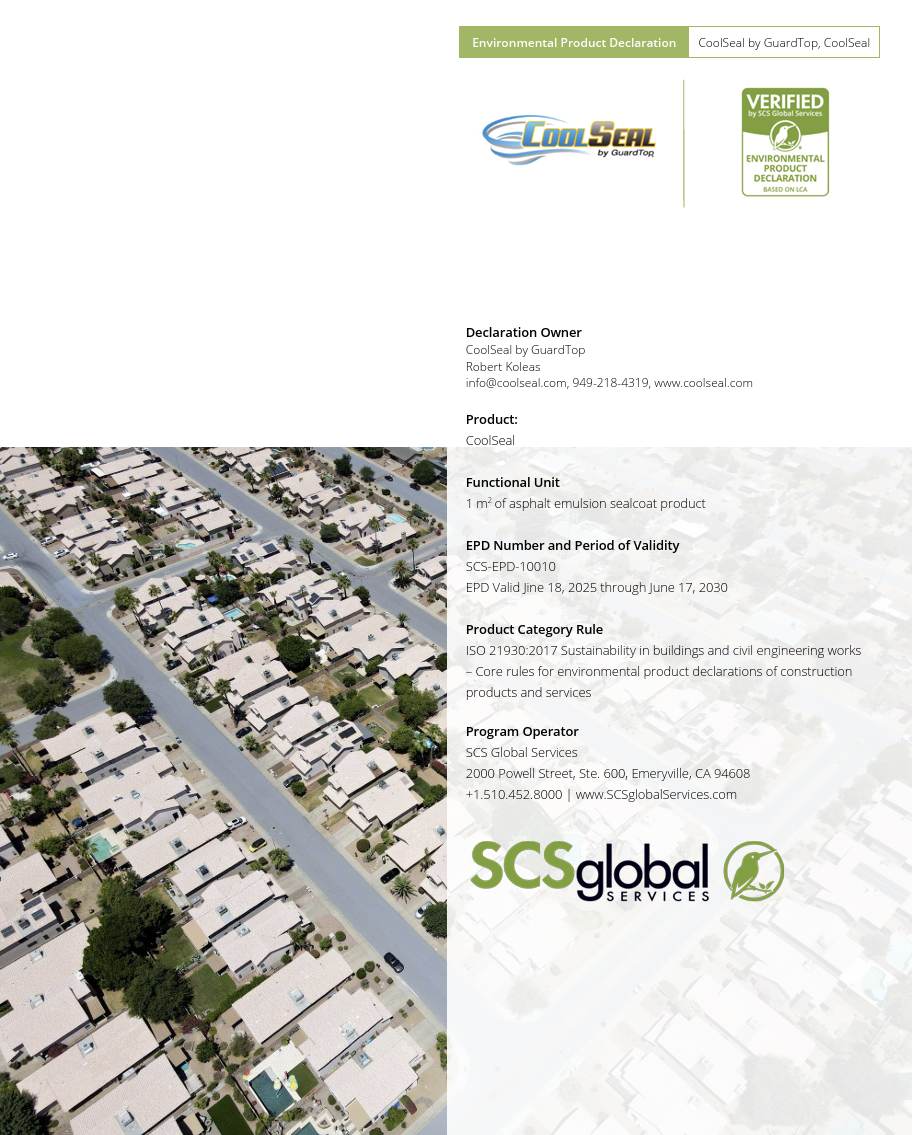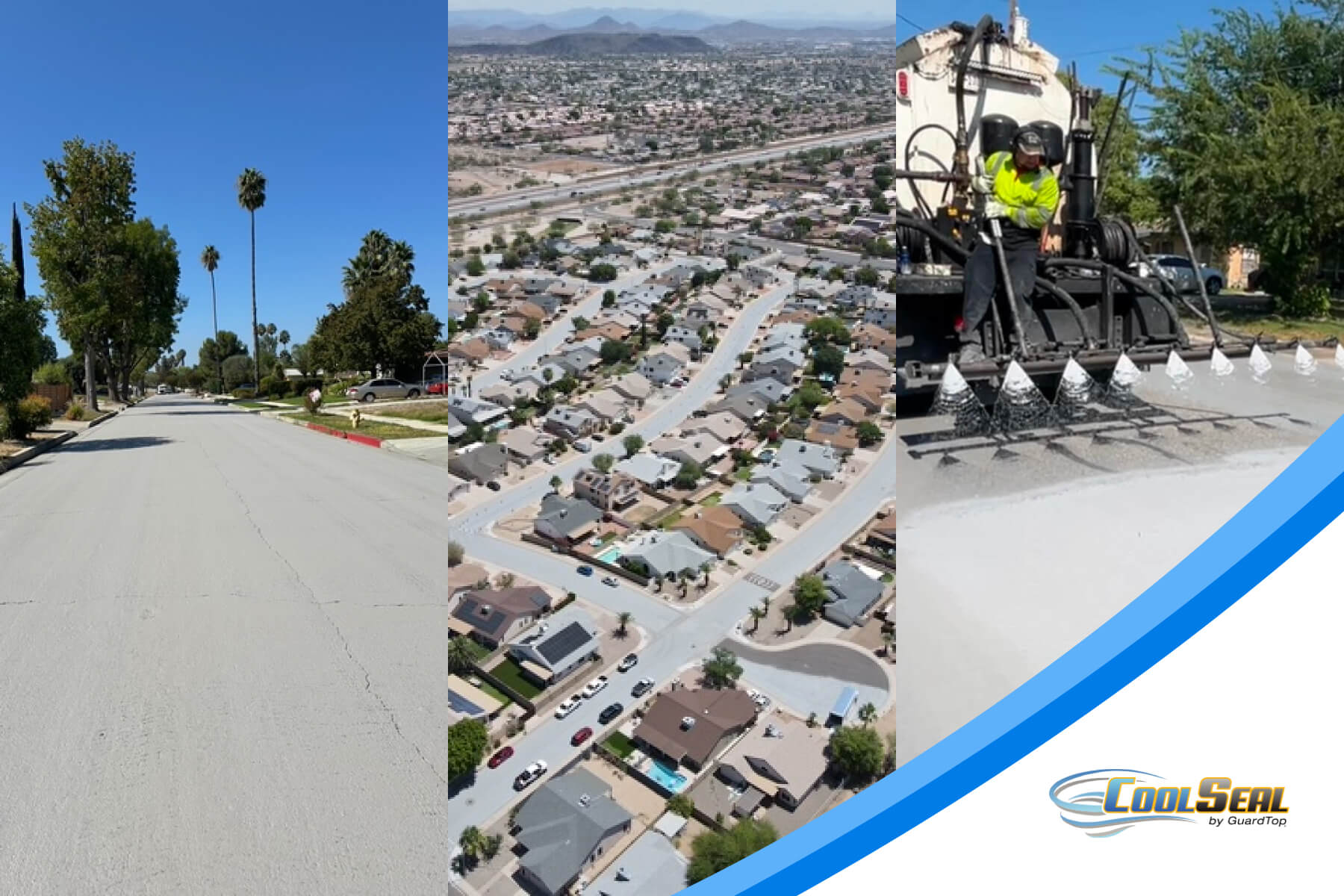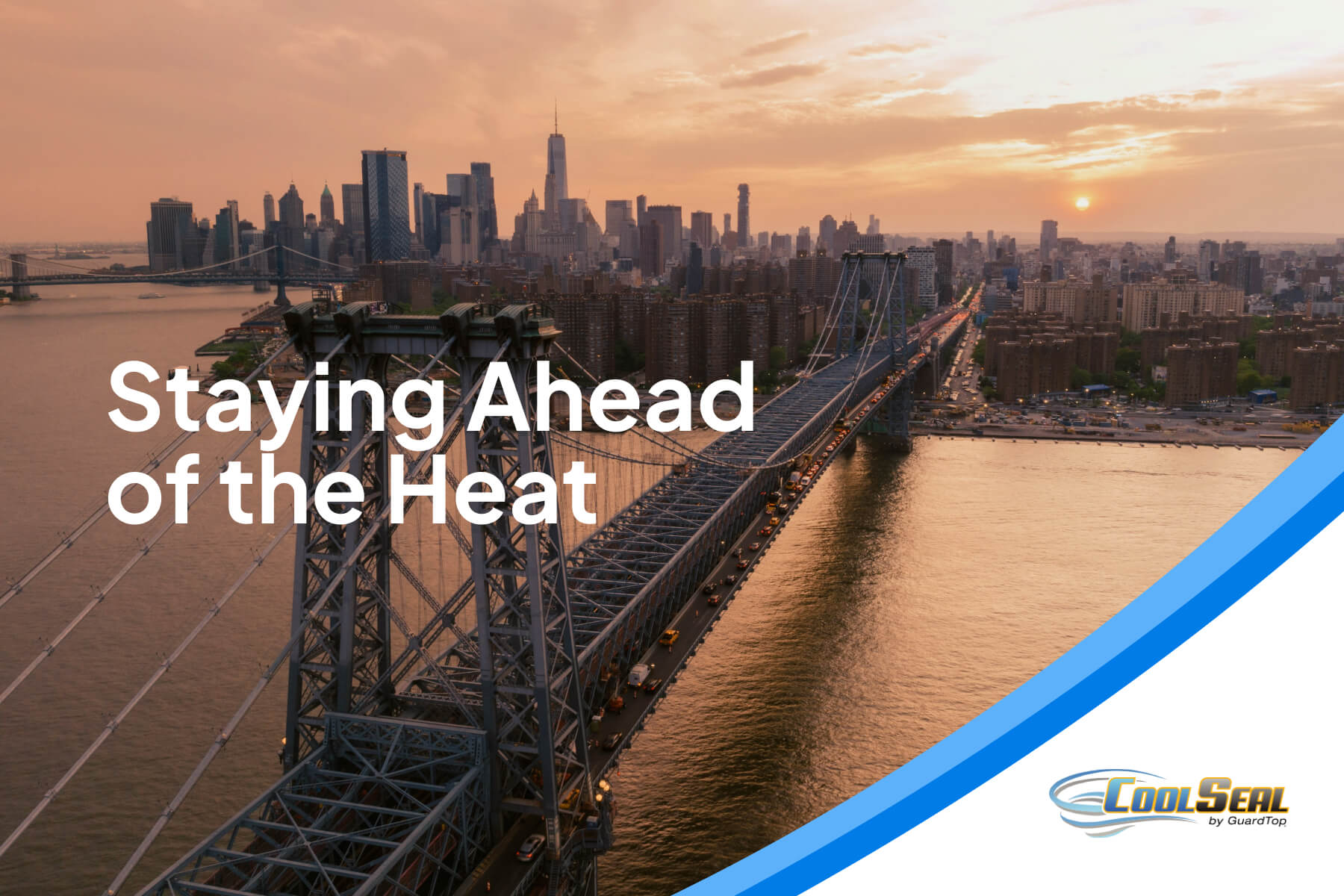CoolSeal was recently put to the test by the City of Phoenix, Arizona, as part of their Cool Pavement Pilot Program, and so far, the results are promising. Last year, the City of Phoenix Street Transportation Department and Office of Sustainability teamed up with Arizona State University (ASU) researchers to begin the program, aimed at cooling down neighborhoods and saving energy costs. To launch the program, CoolSeal was applied to 36 miles of neighborhood roads and a parking lot.
In a virtual presentation and panel discussion on September 14, 2021, the City of Phoenix released the results of the first year of this innovative program. The study, performed by scientists at ASU’s Global Institute of Sustainability and Innovation, Healthy Urban Environments, and the Urban Climate Research Center, found that the reflective pavement surface temperatures of CoolSeal by GuardTop are considerably lower than traditional roadway pavement.
In the study, the CoolSeal cool pavement had an average surface temperature 10.5 to 12 degrees Fahrenheit lower than traditional asphalt at noon and during the afternoon hours. At sunrise, surface temperatures averaged 2.4 degrees Fahrenheit lower. ASU Researchers discovered that CoolSeal’s cooler pavement coating reflects a higher portion of the sunlight that hits it, absorbing less heat. Thanks to this higher reflection, the coating can potentially offset rising nighttime temperatures in the region.
So far, the study has revealed that the nighttime air temperature at six feet of height was on average 0.5 degrees Fahrenheit lower over cool pavement than on the non-treated surfaces. According to David Sailor, Director of the Urban Climate Research Center at ASU, even one degree can make a big difference.
“A single degree Fahrenheit reduction in air temperature during the summer could save residential ratepayers about $15 million per year in avoided air-conditioning costs,” explains Sailor.
The study also revealed that sub-surface temperatures averaged 4.8 degrees Fahrenheit lower in areas treated with CoolSeal. According to Davis Koleas, GuardTop’s Sustainability Project Manager, this means that the depth of the asphalt was almost five degrees cooler, not just the surface, which shows that the asphalt is staying softer and not hardening or cracking. This is great news for municipalities, since it proves that CoolSeal is lasting longer, which will reduce future maintenance costs. In addition, a two-coat application of CoolSeal can last twice as long as conventional sealcoats.
What is Cool Pavement?
So, what is the science behind cool pavements? Cool pavements were designed to aid in reducing and ultimately eliminating heat islands. A heat island is an urban area that has significantly higher temperatures than its surrounding rural areas due to human activities. Cool pavements reflect more of the sun’s energy to produce cooler surface temperatures on the pavement or asphalt.
By using products such as CoolSeal to support in relieving heat islands, communities can save money on energy bills and reduce emissions. According to National Geographic, the Los Angeles heat island costs the city $100 million a year in energy. To help combat it, CoolSeal by GuardTop was an instrumental part of the City of Los Angeles’ Cool Roadways Partnership in 2017.
CoolSeal also has a large presence in Australia, including Salisbury, Melbourne and Adelaide, for a total of roughly two million square feet of cool pavement applied. Australia has also benefited from reduced ambient temperatures, and has led global efforts in going green with cool pavement.
Not only do cool pavements support energy savings and emission reductions, but they can also offer enhanced safety through increased nighttime visibility for drivers, pedestrians, and bikers.
Currently, CoolSeal is the only cool pavement on the market offering a fully-green alternative to sealcoat, while still providing the same protection as traditional sealcoat. CoolSeal is a made-to-order product, and uses recycled materials whenever possible.
GuardTop, which is committed to sustainability, creates products with the environment in mind. Its formula incorporates recycled materials and is free of hazardous volatiles and carcinogenic additives. In addition, GuardTop products preserve pavement and play a vital role in reducing dust and waste associated with replacing asphalt surfaces.
The Future of the Cool Pavement Pilot Program
Ultimately, reducing surface temperatures can result in cooler air temperatures, which, as Sailor points out, can have significant implications for heat-related illness, air quality, water use, and energy use.
In an interview with radio host Mark Brodie on KJZZ’s “The Show,” Phoenix Mayor Kate Gallego says she’s inspired by the recent results of the Cool Pavement Pilot Program.
“I have found the results of our pilot to be enormously encouraging,” she says. “We are seeing neighborhood-level cooling that you can feel.”
As for the future of the program, researchers will continue working in partnership with the Phoenix City Council to launch the second phase of the Cool Pavement Pilot Program in the future.
“Phoenix has been paving the way with this type of investment, and it looks like we need to expand on our pilot,” Gallego says. “Given how successful our pilot has been, we expect more cities to be using this.”
GuardTop is excited to play a critical role in this innovative city program.
“The effects of Urban Heat Islands can be felt by everyone and greatly impact our ecosystem and day to day life,” said Sustainability Project Manager Davis Koleas. “Phoenix and ASU both invested time and money into effectively working to reduce the harm that has already been caused. We are confident residents and visitors alike will reap the benefits and find increased comfort all around.”
View more on the pilot program and access the report summary here.





